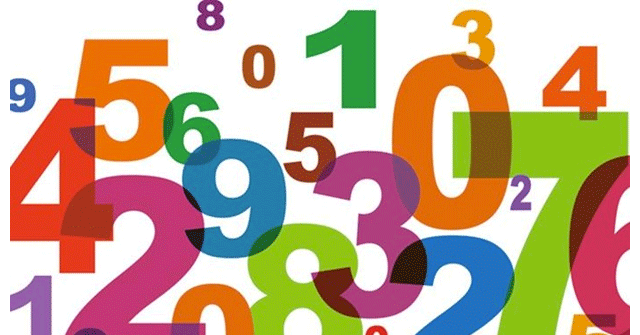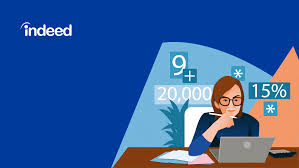
Accounts payable are the monies owed to suppliers, a type of liability on a balance sheet. They can be used for tracking outgoing capital and are a useful indicator. You should note, however, that they are different than notes payable liabilities. These are obligations that are created using a formal legal instrument.
Accounts payable are a source of liability
Accounts payable are a category of your balance sheet showing your short-term obligations to creditors and vendors. To avoid any late fees or charges, accounts payable are the individual bills that you generate at the end a month. You must pay them by the due date. If you have made a credit purchase, your balance sheet will show accounts payable.
Accounts payable are listed under the current liabilities section of your balance. They are due within one year after the transaction date. They are not listed in the assets column. The asset column is only for loans and salaries. The purchase of raw materials is a common account payable. Many suppliers offer 30-60, 60, or 90-day payment terms. This basically means that you are receiving a loan form a supplier. You must repay them within a specific time period.
It's a cash source
Accounts payable is the amount you owe a supplier. A common example of accounts payable is credit card purchases. Accounts payable, also known as deferred revenues, should be paid when the job is completed. Many businesses run out of cash, and they defer paying their accounts payable until the situation is resolved. This can pose a risk to a business.

This will help you avoid problems like these. The current ratio, days payable, and working capital of your company will all be affected by the amount of accounts payable.
It is a tracker of outgoing capital
The financial statements of businesses must include accounts payable. This is the company's obligation to creditors and vendors. This category accounts for the largest portion of a business’s outgoing capital. It's important to manage it properly.
Balance sheets include accounts payable. They are usually listed as current liabilities. Receipt expenses and notes due are two examples of accounts payable. Both accounts are stored in the same area on the balance sheet. Multiple transactions can be recorded with a single vendor accounting. The accounts payable ledger also lists due dates for future payments.
It is a valuable metric
Accounting payable (AP), is an area where it is vital to track metrics. You can track the average time it takes an invoice to process. To avoid late payment penalties, to get early payment discounts and improve the business relationship with suppliers, it is important that invoices are processed promptly. This is a great way to find areas of efficiency.
Whether your accounts payable process is manual or automated, you can use this metric to improve your efficiency. If your accounts payable department processes invoices manually then the time it takes to process each invoice will be significantly higher. It is important that you track the time of these people and include any associated software costs. Other costs that contribute to account payable time include transaction fees, which vary depending on the method used for making transfers.

It should be paid in cash
Accounts payable represent the short-term obligations businesses have to their suppliers. They are generally handled by accounts payable departments. You should pay any outstanding invoice as soon as you can. Cash is the best way to avoid delays. If you don't pay a bill in cash, it will get delayed until the next month.
Businesses can use accounts payable to stay on top of their payments and avoid missing deadlines. It makes liabilities clearer and helps cash flow projections more straightforward. Knowing how much money your suppliers owe you can help make better spending decisions, and negotiate for lower prices. Audits can also be made easier by having this information at your fingertips.
FAQ
Accounting is useful for small business owners.
Accounting is not only for large businesses. Accounting can also be useful for small businesses because it allows them to track how much money they spend and make.
If you own a small business, then you probably already know how much money you have coming in each month. But what happens if you don’t have a professional accountant to help you with this? It's possible to be confused about where your money is going. You might forget to pay your bills on time which could negatively impact your credit rating.
Accounting software makes managing your finances simple. There are many options. Some are free while others cost hundreds to thousands of dollars.
However, regardless of the type of accounting software you choose, you will need to be familiar with its basics. It will save you time and help you understand how to use it.
These are the three most important tasks you should know:
-
Input transactions into the accounting software.
-
Keep track of incomes and expenses.
-
Prepare reports.
These three steps will help you get started with your new accounting system.
What exactly is bookkeeping?
Bookkeeping is the practice of maintaining records of financial transactions for businesses, organizations, individuals, etc. It includes recording all business-related expenses and income.
Bookkeepers maintain financial records such as receipts. They also prepare tax returns and other reports.
What happens if I don’t reconcile my bank statements?
If you fail to reconcile your bank statement, you may not realize that you've made a mistake until after the end of the month.
At that point, you'll have to go through the entire process again.
What is a Certified Public Accountant and how do they work?
Certified public accountant (C.P.A.). An accountant is someone who has special knowledge in accounting. He/she is able to prepare tax returns and help businesses make sound business decisions.
He/She monitors cash flow for the company and makes sure the company runs smoothly.
Statistics
- BooksTime makes sure your numbers are 100% accurate (bookstime.com)
- In fact, a TD Bank survey polled over 500 U.S. small business owners discovered that bookkeeping is their most hated, with the next most hated task falling a whopping 24% behind. (kpmgspark.com)
- According to the BLS, accounting and auditing professionals reported a 2020 median annual salary of $73,560, which is nearly double that of the national average earnings for all workers.1 (rasmussen.edu)
- a little over 40% of accountants have earned a bachelor's degree. (yourfreecareertest.com)
- Given that over 40% of people in this career field have earned a bachelor's degree, we're listing a bachelor's degree in accounting as step one so you can be competitive in the job market. (yourfreecareertest.com)
External Links
How To
Accounting for Small Business
Accounting for small businesses should be one of your most important tasks when managing a business. Accounting includes the preparation of financial reports and income statements, as well tracking expenses and income. Quickbooks Online and other software programs are required. There are several ways to do small business accounting. You need to choose the most appropriate method for your business. Below are the top choices.
-
The paper accounting method is recommended. You might prefer to use paper accounting, which can be very simple. The process of using this method is very easy; you just need to record your transactions daily. If you are looking to ensure that your records are accurate and complete, you may want to consider QuickBooks Online.
-
Online accounting is a great option. Online accounting gives you the ability to easily access your accounts whenever and wherever you are. Wave Systems and Freshbooks are three of the most widely used options. These software are great for managing your finances, sending invoices and paying bills. They are easy to use, have great features, and many benefits. These programs will help you save both time and money in accounting.
-
Use cloud accounting. Cloud accounting is another option. It allows data to be securely stored on a remote server. Cloud accounting offers many benefits over traditional accounting systems. First, it does not require you to buy expensive hardware or software. Second, it offers better security because all your information is stored remotely. It takes the worry out of backups. It makes it easy to share files with others.
-
Use bookkeeping software. Bookkeeping software is similar in function to cloud accounting. You will need to purchase a computer and then install the software. After you install the software, you'll be able connect to the internet and access your accounts whenever you wish. You can also view your balances and accounts right from your computer.
-
Use spreadsheets. Spreadsheets can be used to manually enter financial transactions. One example is a spreadsheet you can use to track your daily sales. A spreadsheet has the advantage of being able to modify them whenever you wish without needing a complete update.
-
Use a cash book. A cashbook is a ledger where you write down every transaction that you perform. Cashbooks come in different sizes and shapes depending on how much space you have available. You have the option of using a different notebook for each month, or a single notebook that covers several months.
-
Use a check register. Use a check register to keep track of receipts and pay bills. Once you have scanned the items, you can transfer them into your check register. You can also add notes to help you recall what you purchased.
-
Use a journal. A journal is a type of logbook that keeps track of your expenses. This is a good option if you have lots of recurring expenses like rent and insurance.
-
Use a diary. A diary is simply something you keep track of and that you can write in your own words. It can be used to track your spending habits and plan your finances.